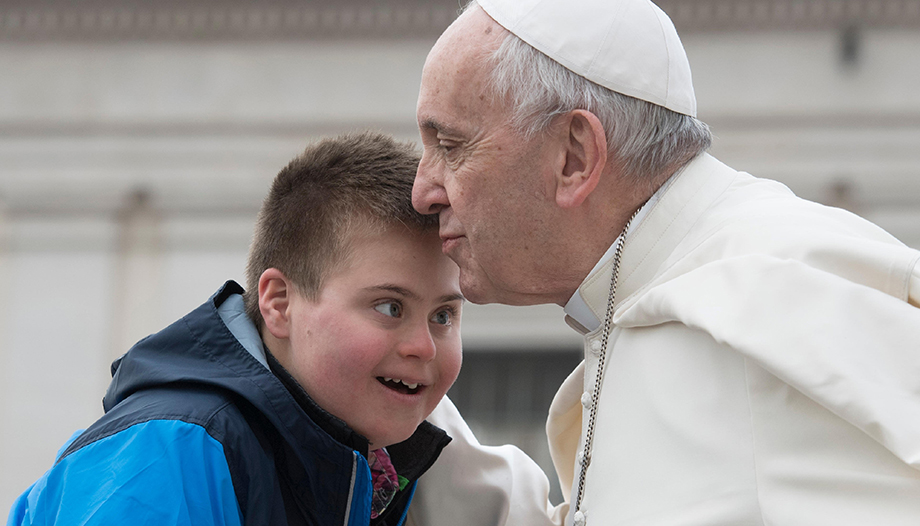Making the Gospel accessible to all is always an unavoidable task for the Church. Certainly, for decades, numerous ecclesial initiatives, such as the Pastoral Care of the Deaf or the work with blind people, show that, even before social awareness, the Church's work with people with disabilities has been, in many cases, pioneering.
At present, the faithful themselves demand this attention to the different situations of people. The attention and catechetical adaptation to children with ADHD or Down Syndrome is already a reality in many parishes. However, not all parishes have the same possibilities and, responding to this unavoidable demand of what we could call "closer peripheries", the Episcopal Conference will have a specific area, within the Catechesis Commission, dedicated to the pastoral care of people with disabilities.
Its coordinator is Roberto Ramirez, a young priest of the diocese of the Canary Islands, who attends three parishes on the island and who, responding to Omnes points out that "although this is certainly a new area in the Episcopal Conference, this does not mean that the work is new. What is intended is to collect all the work that has been done for years, for example, in the pastoral care of the deaf or Frater, people who work with the blind or children with ADHD ... and thus help the dioceses.
The work of this area will not be limited to catechetical matters, but will also address pastoral issues, with such concrete derivations as "the construction of adapted temples".
Although this is a new area in the Episcopal Conference, it does not mean that the work is new.
Roberto Ramirez
Ramirez points out that "although the pandemic has delayed the pooling of this team, the first task they have is that "all of us who work in these areas of people with disabilities meet, share needs and challenges, and share resources".
Obviously, the ideal, as the priest points out, would be for each diocese to have a person in the Catechesis or pastoral delegation who would deal with these issues: "a kind of liaison who could guide the parishes according to the cases and who would have contact with the Bishops' Conference itself".
First steps of the work
For the head of this area, one of the first tasks to be tackled is to put together "an extensive library of resources within the reach of any diocese. To guide the dioceses and offer them resources, guidance, etc.," which they may not have or simply benefit from experiences in similar cases.
Roberto Ramirez emphasizes the importance of gathering this "bibliography and experiences that can serve to guide the people in charge of catechesis or in the parishes, who are the ones who receive the cases in the first instance".
The pandemic has delayed the work of this area that began to be organized before March 2020. It will be next October when, after numerous setbacks, the various people who make up this team will meet to launch this new field of work of the EEC.
Among the members of the team that makes up this area are people with hearing or visual disabilities, catechists and faithful who work with Down syndrome or children with ADHD. In this way it is intended to share the pastoral peculiarities to be addressed from the parishes and the answers that have already been given in many places as adapted areas in the parishes for people with hearing impairment or successful resources for pre - communion catechesis with children with ADHD.
At the present time we are working on some initial guidelines that are appropriate to the current situation and the needs of the faithful with various disabilities.
For this priest of the diocese of the Canary Islands, who has worked pastorally with children with Down syndrome or ADHD, the Church has a great ally in the new technologies for the pastoral work with these faithful, children, youth and adults: "today it is very easy for a parish to project, for example, in the catechesis of children that summarizes the Gospel teaching that is to be transmitted to them".
The department of the Episcopal Conference currently has a team of specialists in each of its five sections: pastoral care of the deaf; intellectual disabilities; ASD and ADHD disorders; visual impairment; and pastoral care in the different realities.












